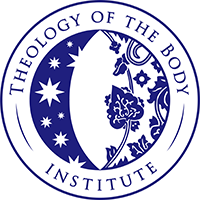

A Saint Says “Yes” to God’s Life-Giving Seed
A Saint Says “Yes” to God’s Life-Giving Seed


[NOTE: The following is excepted and revised from Word Made Flesh (Cycle B) by Christopher West. Order the three-cycle bundle here.]
Today’s second reading for the Feast of All Saints exudes Saint John’s exuberant joy when he proclaims: “See what love the Father has bestowed on us that we may be called the children of God. Yet so we are.”
A saint is someone who knows and lives his or her identity as a child of God to the full. How do we become children of God? Grace builds on nature. Just as we were born of our natural parents’ union, we must be “born again” of the supernatural union of the New Adam and the New Eve: Christ and the Church.
This is precisely what happens in our baptism. Christ pours his spousal love out upon his Bride, the Church, and she “brings forth sons, who are conceived by the Holy Spirit and born of God, to a new and immortal life” (Catechism of the Catholic Church 507). The offspring of the New Adam and the New Eve are born not of the flesh, not of a husband’s physical seed, nor of a genital union, “but of God” (Jn 1:13). In this way we see that Baptism is a “nuptial mystery” (CCC 1617) “in which the ‘imperishable seed’ of the Word of God produces its life-giving effect” (CCC 1228).
While few of us choose to be baptized, saints are those who later in life consciously choose to allow God’s “imperishable seed” to bear its life-giving effect. Abba, let your seed bear its fruit in us!
[Photo by nicoletaionescu, istockphoto.com]



